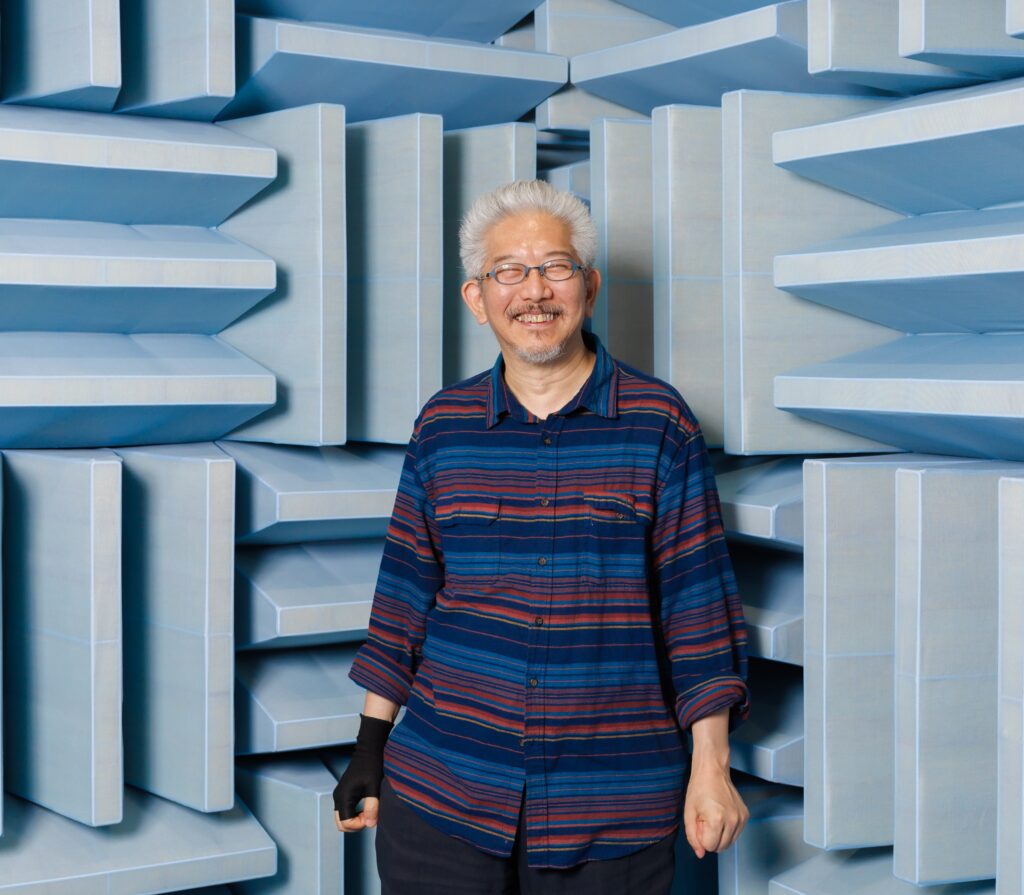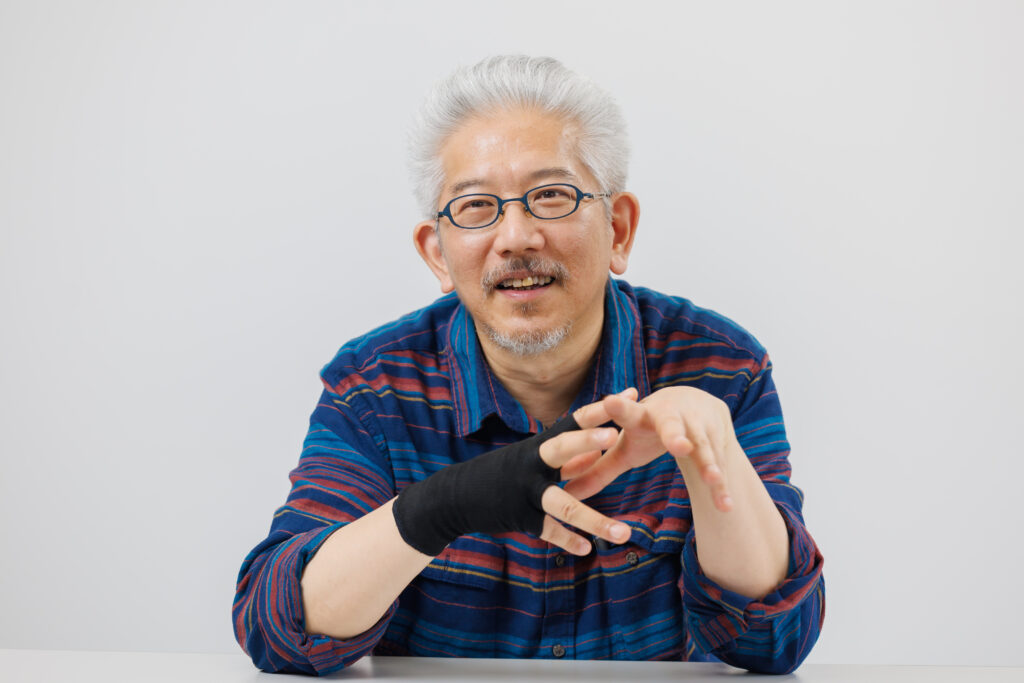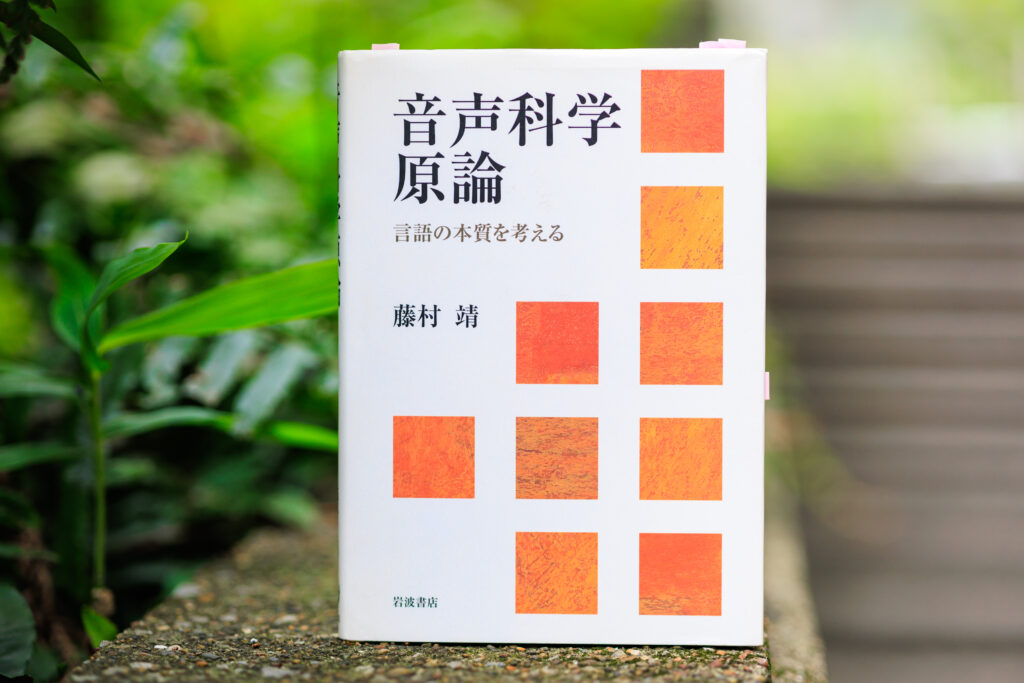
Professor Mafuyu Kitahara from the Faculty of Foreign Studies undertakes research in spoken language spanning the three fields of phonetics, phonology, and cognitive science. He pursues the essence of language from a familiar theme: the difference between a crisp voice and an unnoticeable one.
Have you ever thought about how our conversations come to life? First, breath expelled from the lungs passes through the throat and is articulated into speech within the mouth. Speech from the mouth is conveyed through the air as audio waves, reaching the ears of another person, where it is heard and understood. My research aims to analyze these processes in detail to understand what goes on when we communicate via speech.
Therefore, it is essential to have knowledge of phonetics, which looks at the physical and physiological aspects of language in terms of the mechanisms of vocalization and hearing. We also need the approach of phonology, which reveals the significance of a sound in a given language system and how it is recognized by speakers.
Furthermore, cognitive science is also effective for understanding the workings of the brain when speaking and listening, and recently, there is growing interest in natural language processing using artificial intelligence. I have been conducting research on spoken languages from various angles using a cross-disciplinary approach that spans several such fields.
Analyzing the characteristics of a crisp voice to reproduce it artificially

In recent years, I have been focusing on research about how voices are conveyed. For example, I am sure many have experience calling for a waiter several times at a restaurant only to go unnoticed. What is the difference between a crisp voice and an unnoticeable one? If it were just an issue of pitch and volume, there should be a clear difference in how voices are conveyed between men and women. In reality, this is not the case. Some other factors determine the crispness of a voice.
Research shows that our ears recognize sounds that are strong in certain frequency ranges as “crisp voices.” When comparing people who speak in crisp voices with those who do not, we also saw that there are differences in how syllables are joined as well as the disposition of the oral cavity and throat.
Going forward, I hope to focus on revealing undiscovered factors as well as work on the development of the basic technology for an app that changes, in real time, an unnoticeable voice into a crisp one. This technology should play a significant role in scenarios when a message must be properly conveyed to many people, such as an evacuation broadcast during a disaster.
Tearing down inter-disciplinary walls to pursue the essence of language
The approach of phonetics and phonology is also helpful in learning English. For example, when we investigated the pronunciations of speakers at various levels of learning, we found that learners with a higher level of proficiency tend to properly voice softly those syllables that are not stressed. By actively using such knowledge, anyone should be able to learn natural pronunciations more efficiently.
I am also working on a variety of research themes, including the phenomenon of devoicing significant vowels in Japanese and the voice characteristic of the Tohoku dialect. My research has led me to believe that there are no interdisciplinary walls in academic endeavor. We do not need to be bound by the absurd and illogical division between science/engineering and humanities.
Actually, in linguistics today, mathematics and programming knowledge are absolutely necessary when analyzing the data obtained from experiments. One can feel free to learn vastly from whatever field in order to unravel the mystery in front of one’s eyes. Researchers and students of the future will need such an insatiable intellectual curiosity.
The book I recommend
“Onsei Kagaku Genron”(Principles of Phonetics)
by Osamu Fujimura, Iwanami Shoten

The author, Osamu Fujimura, was a famous researcher who gave birth to a unique speech articulation model by adopting an approach based on medical science, physics, and engineering. The book remains a guide for me even today, providing an ideal example of integrating science, engineering and humanities.
-
Mafuyu Kitahara
- Professor
Department of English Studies
Faculty of Foreign Studies
- Professor
-
Graduated from the Department of Linguistics, Faculty of Letters, Kyoto University, and entered the doctoral program of the university’s Graduate School of Letters. Received his Ph.D. in Linguistics and Cognitive Science from Indiana University. Took on several positions—such as assistant professor at Yamaguchi University’s Faculty of Engineering as well as associate professor and professor at Waseda University’s School of Law—before assuming his current position in 2016.
- Department of English Studies
Interviewed: June 2023